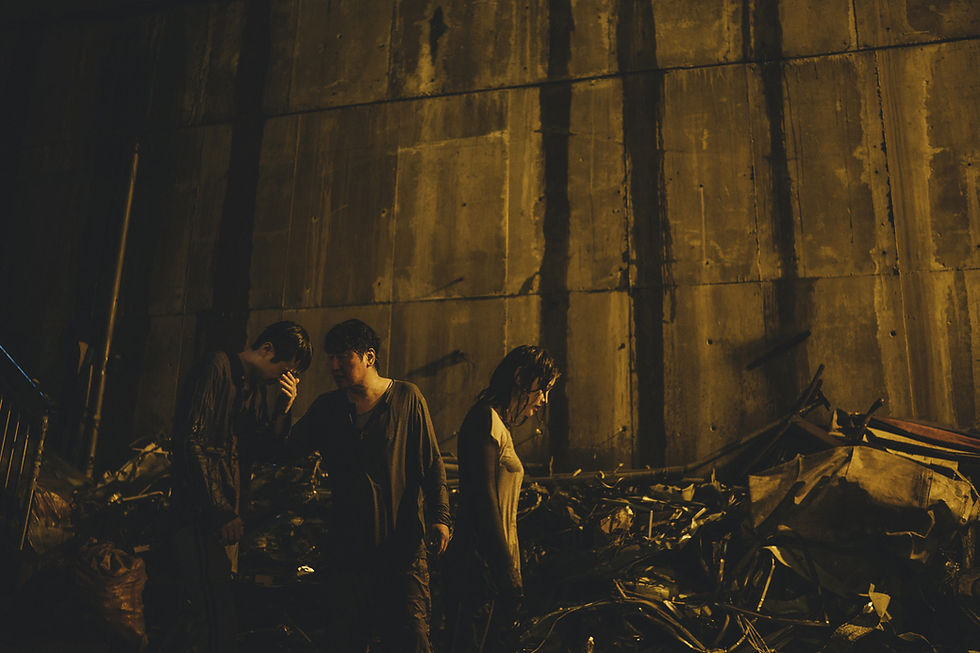The Enduring Relevance of Parasite in Lockdown
- Hanna Pham
- Sep 12, 2020
- 3 min read
‘Parasite’ by Bong Joon-ho is a mammoth of cinema. Its intricate eye to detail and multi-layered storytelling led to it becoming the first foreign language film to win Best Picture at the Oscars — and rightfully so. Upon my first viewing of the movie in a pre-quarantined world, I was in complete awe of how beautifully the plot, set design, and script intertwined to produce a scathing commentary on social classes and capitalism. Every line of dialogue, every camera pan had a symbolic and stylistic significance. So it seemed natural that, when I longed for something that could take me out of a seemingly endless quarantine, I returned to ‘Parasite’ as a distraction. Like all great movies, the second watch allows the viewer to catch plot points or details they missed, and ‘Parasite’ is no exception. Watching the movie again in a world of masks and social distancing further illuminated Bong’s critique of modern society. It became in my eyes a direct reflection of income inequality during the pandemic, especially in countries where poverty is not immediately noticeable when you walk down the street. As Bong Joon-ho stated: “In today’s capitalist society, there are ranks and castes that are invisible to the eye”. Those ranks and castes, brought to the forefront in his film, have been made even more obvious by the pandemic.

Credit: allocine.fr
When a severe thunderstorm hits Seoul, the wealthy Parks praise it as a blessing in disguise, whereas the Kims lose their basement home alongside what little material wealth they have inside of it. In the middle of lockdown, this became a perfect metaphor for how the quarantines put in place by the government to curb the virus have affected different income brackets. Before quarantine fatigue set in, it felt like there was an endless amount of social media posts sprouting the same edict, among them celebrities’ Instagram stories and a poem by Kitty O’Meara rejoicing in staying home and seeing it as an opportunity to meditate, learn and create new ways to heal one’s self and the world.
At the other end of the spectrum however were those whose situations did not involve unlimited time to reconnect with their selves and families. Not having stable access to healthcare, losing income, or being forced to undertake high-risk jobs no doubt made it difficult to see the lockdown as an opportunity rather than a catastrophe. Just like the flood in ‘Parasite’, those with privilege and economic security failed to see the detrimental aftermath of the storm that is coronavirus.
Moreover, the Kims’ service to their household allows the Parks to live a luxurious life devoid of mess or worry. This is most blatant in the fact that Geun-se changes the stairway lights every day, but Mr Park assumes this is due to sensor motion lights. He is completely oblivious that his comfort relies on someone else’s labour. This plot point represents another glaring disparity, made all the more obvious with the pandemic: those in upper income brackets heavily rely on those who perform menial labour. As I and many others sit comfortably at home, online shopping out of sheer boredom, postal service workers and delivery drivers continue to ensure our packages arrive to us on time. Supermarket employees ensure shelves are stocked and cleanliness is maintained. They do so despite the deadly virus permeating the air.

Credit: allocine.fr
Another often used metaphor in ‘Parasite’ is the characters’ different attitudes in regard to food. For the Parks, food is pure decadence. They top off cheap instant noodles with high quality beef. Expensive fruit platters are merely another snack option. Meanwhile, the Kims are subservient to food. Their jobs at a chicken, dessert, and pizza shop illustrate how food becomes a crucial source of income rather than a luxury they can enjoy. In the same way, many of us have spent our lockdown in the kitchen, making elaborate desserts or creating sourdough starters. Food is a matter of entertainment, another subject for our social media posts. But there are also thousands of people across the world who are reliant on food banks for sustenance. Food insecurity has been exacerbated by the unemployment and economic downfall that coronavirus has ushered in. Food factories, despite being a hotbed for the spread of coronavirus, remain open in order to fuel the needs and comforts of consumers.
While the stark disparities between the wealthy and the poor were always well represented in ‘Parasite’, it is in a world overrun with coronavirus, rampant unemployment and an economic depression on the horizon that this masterpiece is now more than ever glaringly relevant. Bong’s analysis of income inequality is powerfully illuminated by the on-going pandemic, and ‘Parasite’ serves as an illustration of the power films have to age gracefully and progressively continue to reflect the flaws of the world we live in.
Read Eloise Wright's review of 'Parasite' here.
Edited by Juliette Howard, Deputy Film Editor
























Comments